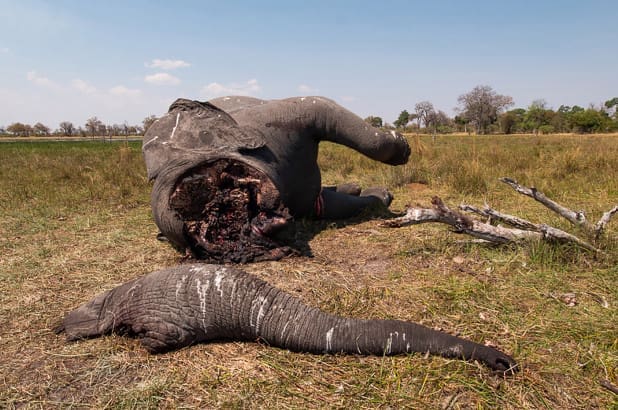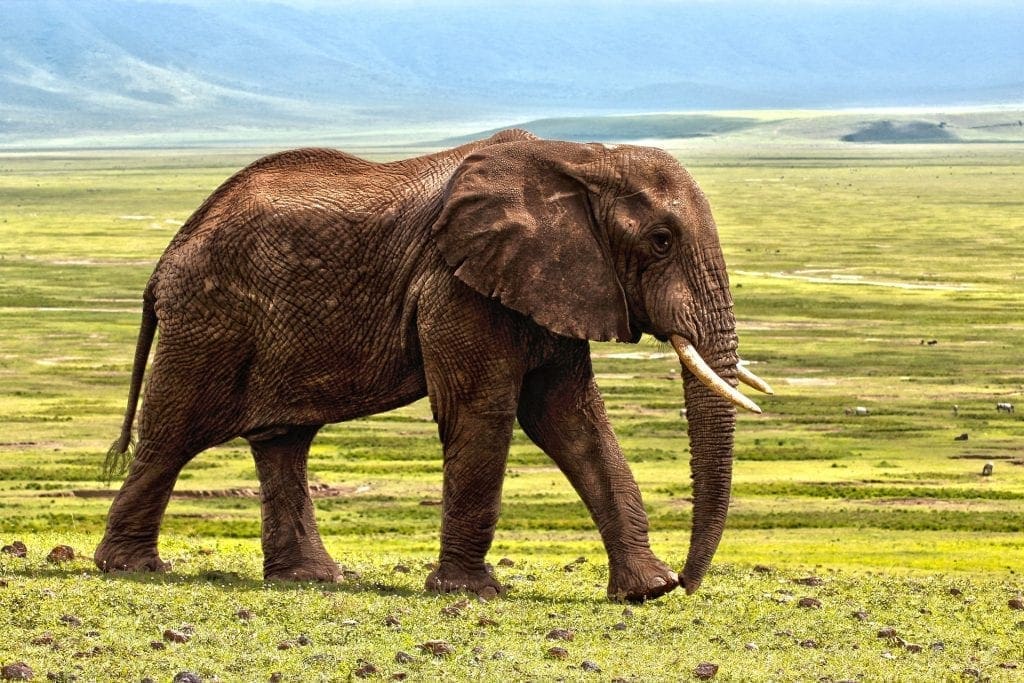Certain images, you’d rather not see. But this is a reality of what is happening everyday in Africa. The Ivory War is alive and more brutal than most think.
A heartbreaking image was captured showing a severely mutilated elephant, dead on the ground after poachers hacked its head in half to get its ivory tusks.

28-year old South African photojournalist, Justin Sullivan, used a drone to capture the devastation caused by poaching with the trunk lying a few feet from the mammal’s head. Barbaric poachers used a chainsaw to sever the elephants head in half in order to remove its ivory tusks, before abandoning the carcass to rot under the hot African sun. The attack took place just 20 minutes away from the nearest camp.
Sullivan’s photograph, ‘Disconnected’, was taken in northern Botswana where ivory poaching is a growing concern amongst environmentalists. The image came to light after it was nominated for the prestigious Andrei Stenin International Press Photo Contest.

“They said an elephant had just been poached and I asked to be taken to the site. On arrival I used a drone to capture the image.
The image is called ‘Disconnection’, the perspective of the image gives context to the situation which you would never be able to see from the ground.Sullivan had been working in Botswana when he overheard rangers discussing the slaughtered elephant
The high angle looking top down shows isolation and highlights not only the physical disconnection of the animal, but our disconnection from the situation.’
“People have obviously reacted with mixed feelings of anger and sadness, especially with the recent lift on the hunting ban in Botswana, but this photo has driven some constructive dialogue around how we can promote more sustainable elephant conversation and solve our current ecological crisis.”
In May this year, Botswana lifted its five-year ban on elephant hunting, citing growing conflict between humans and elephants. This decision has raised a large amount of concern, provoking outcry from conservation organisations.

Poaching has increased dramatically in Botswana over recent years. It’s estimated the number of carcasses in northern parts of the country soared by a staggering 593 per cent between the years 2014 and 2018.
Images the likes of this are hard to forget once seen, however it is this exact reaction that proves it vitally important that these images are seen and that awareness is created. A global effort is needed in the fight against the slaughter of Africa’s giants.
